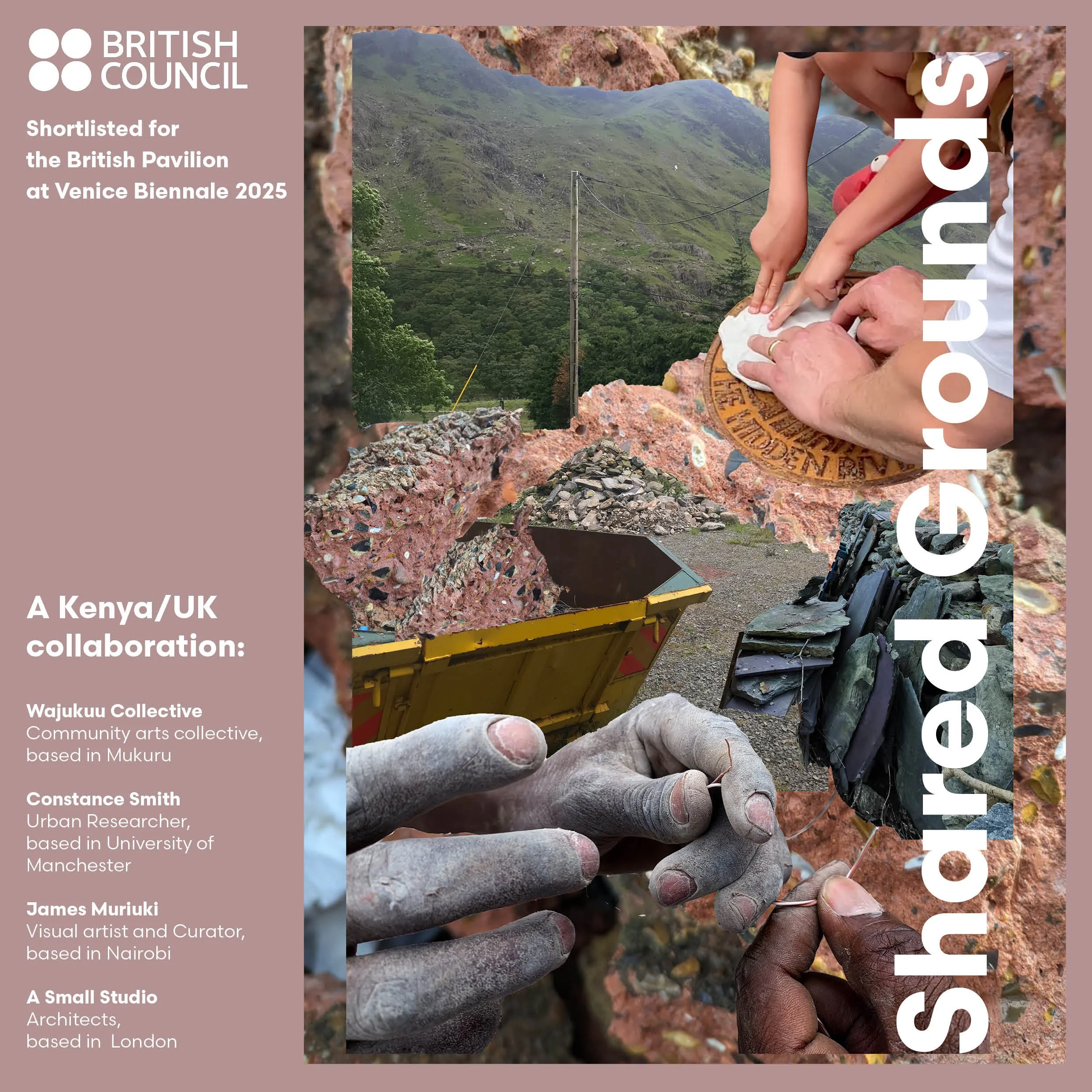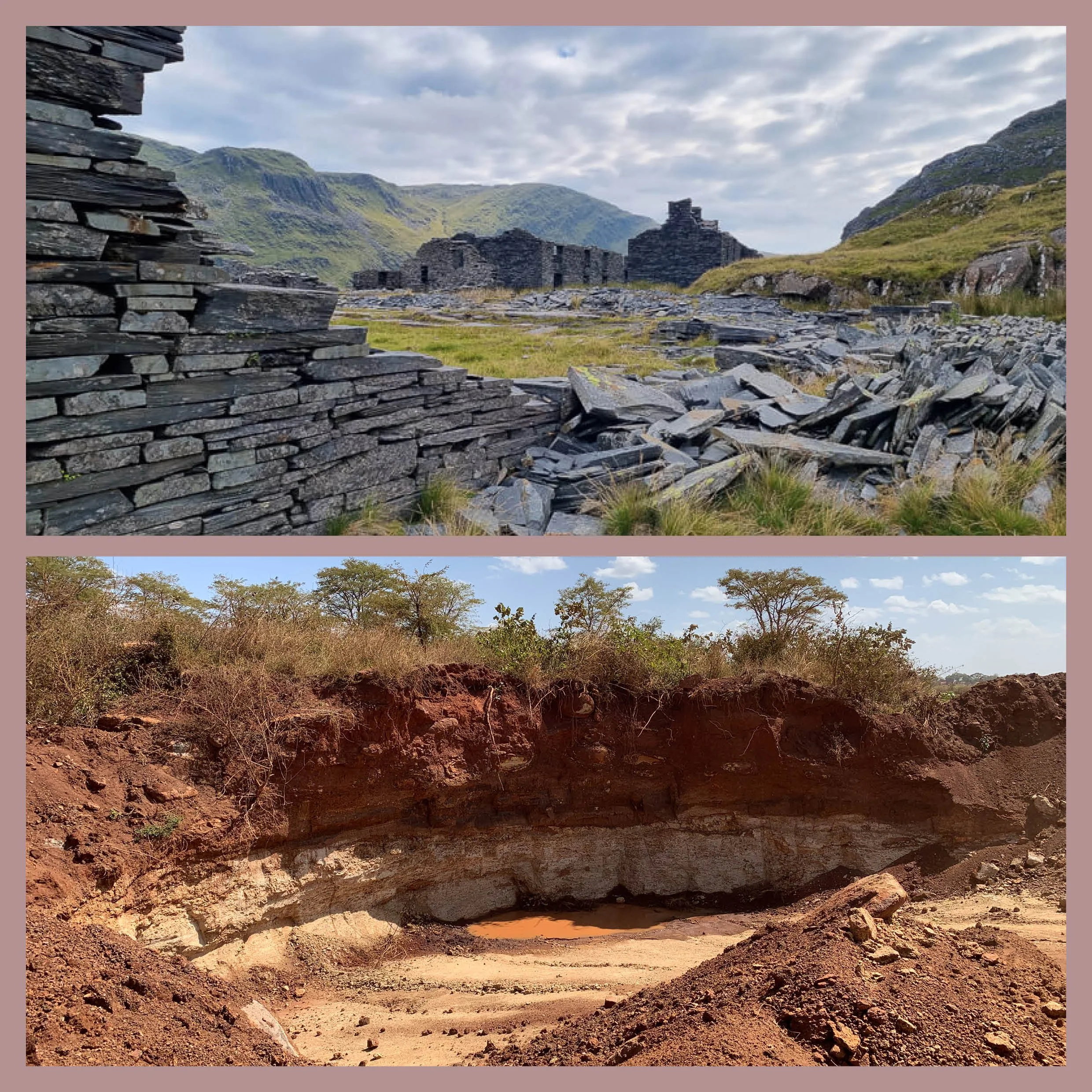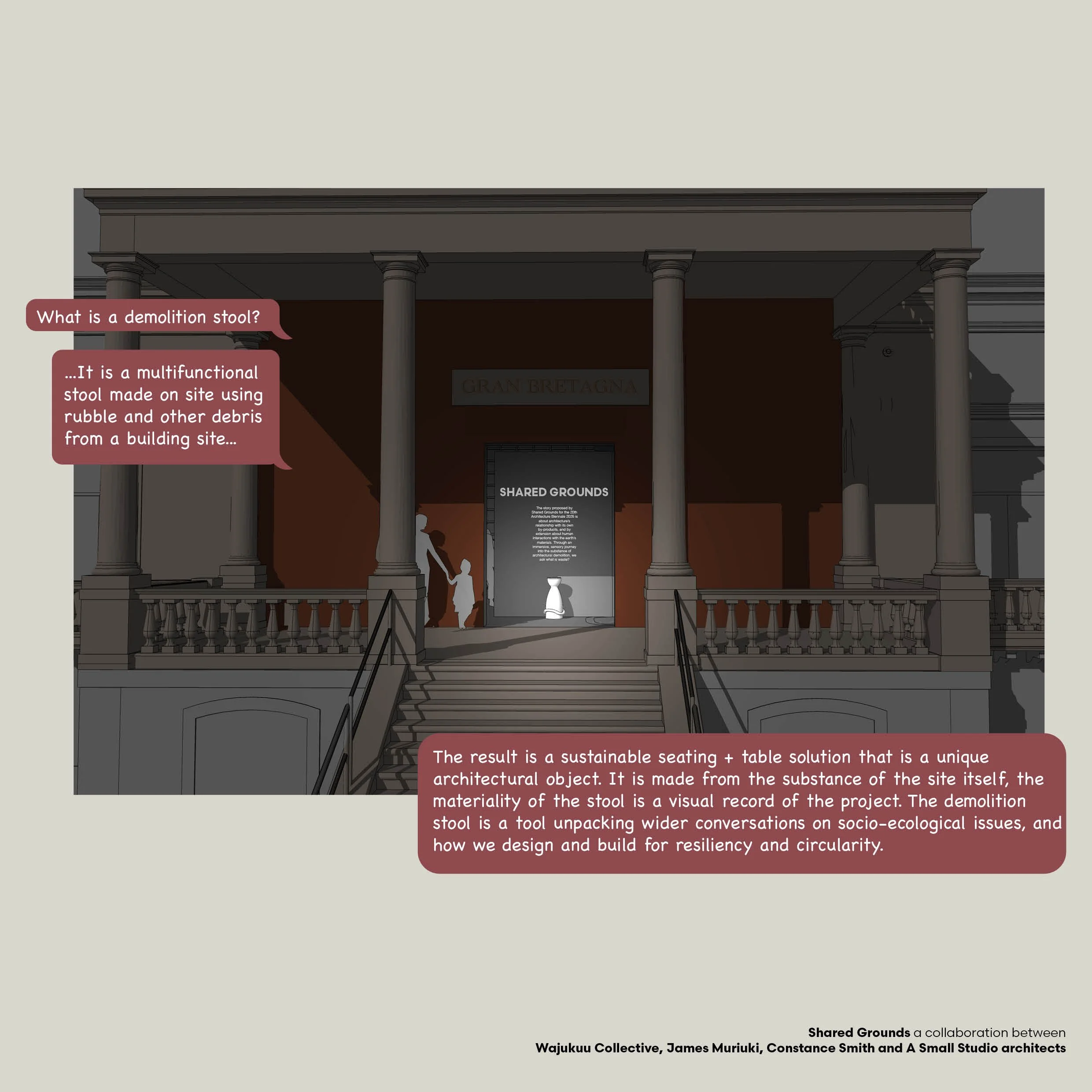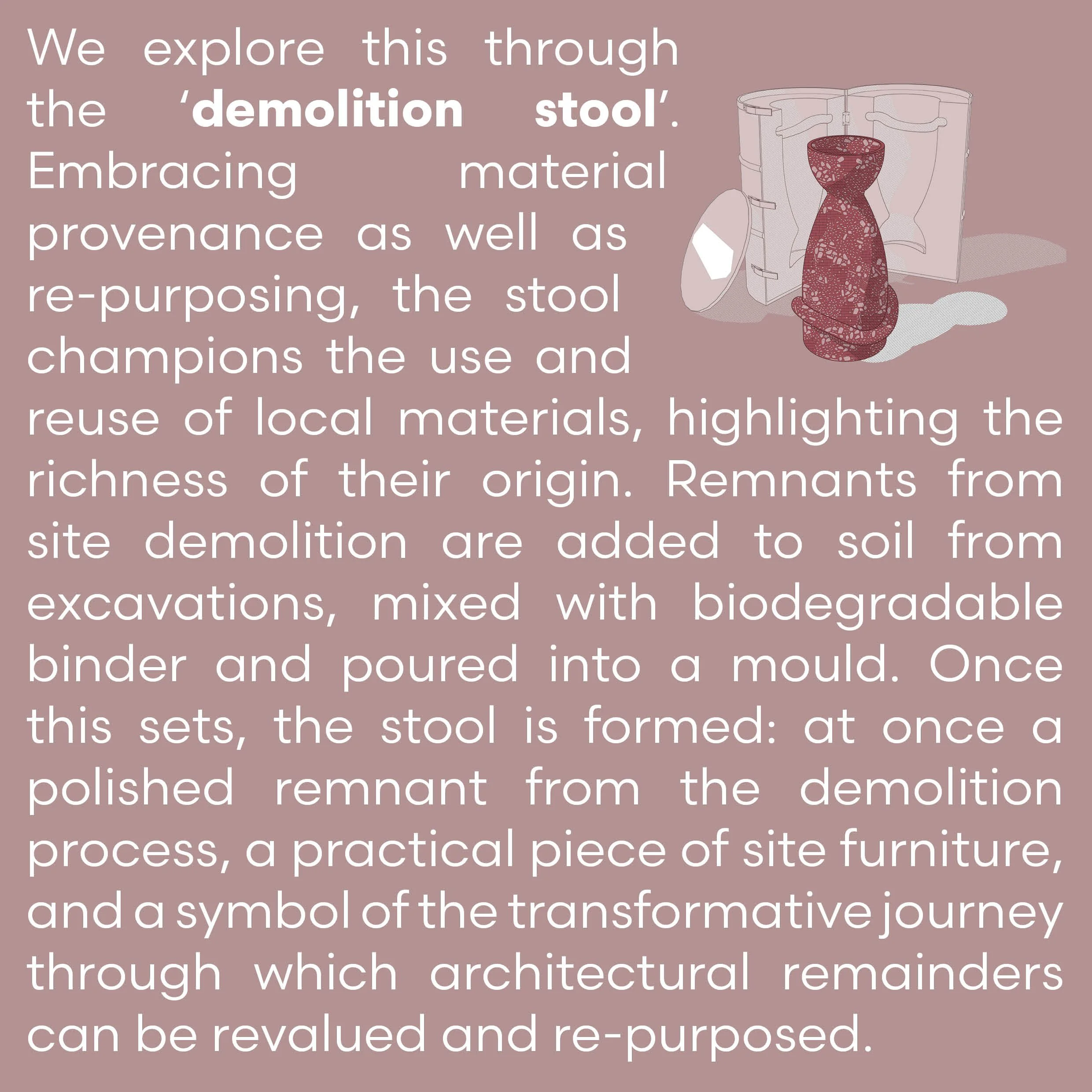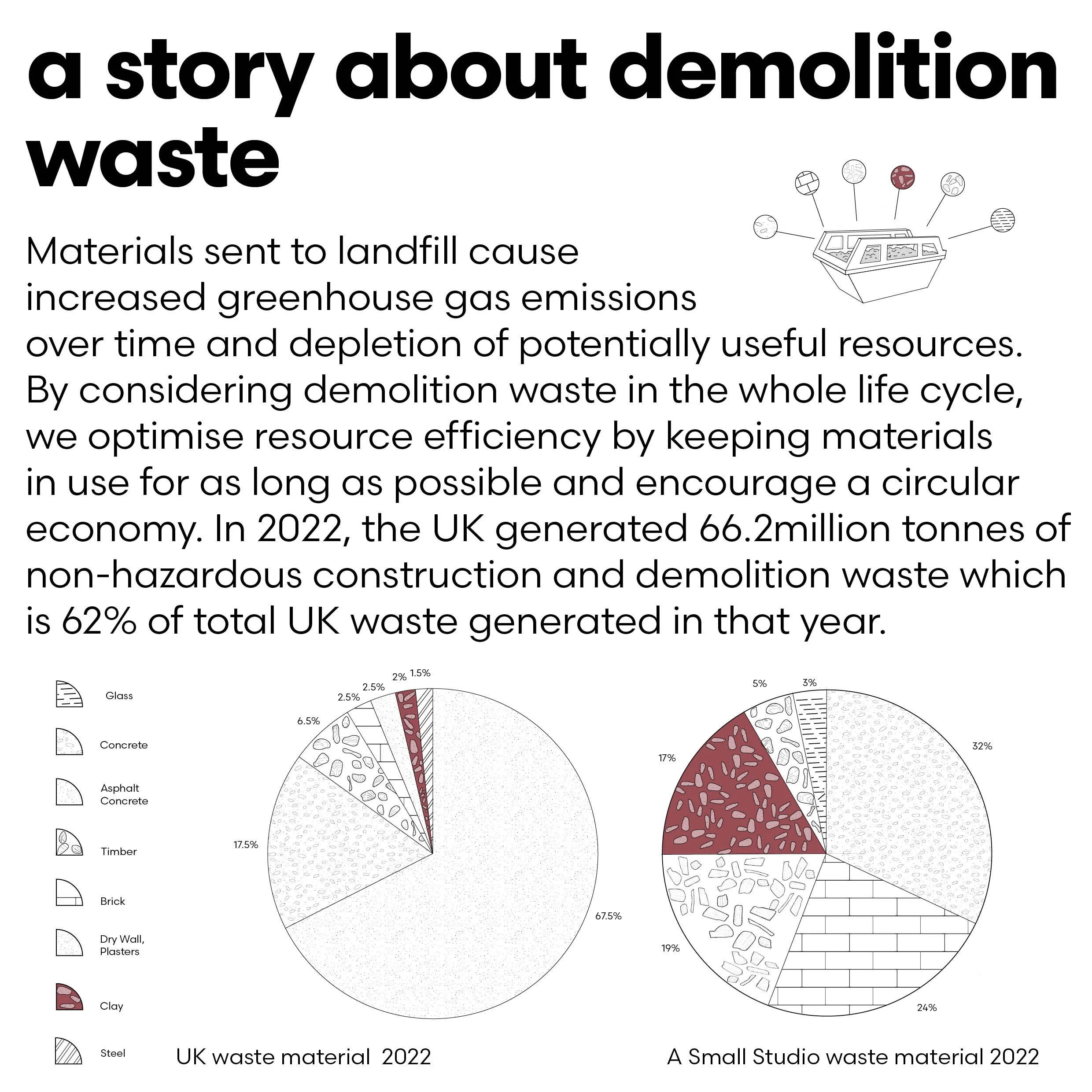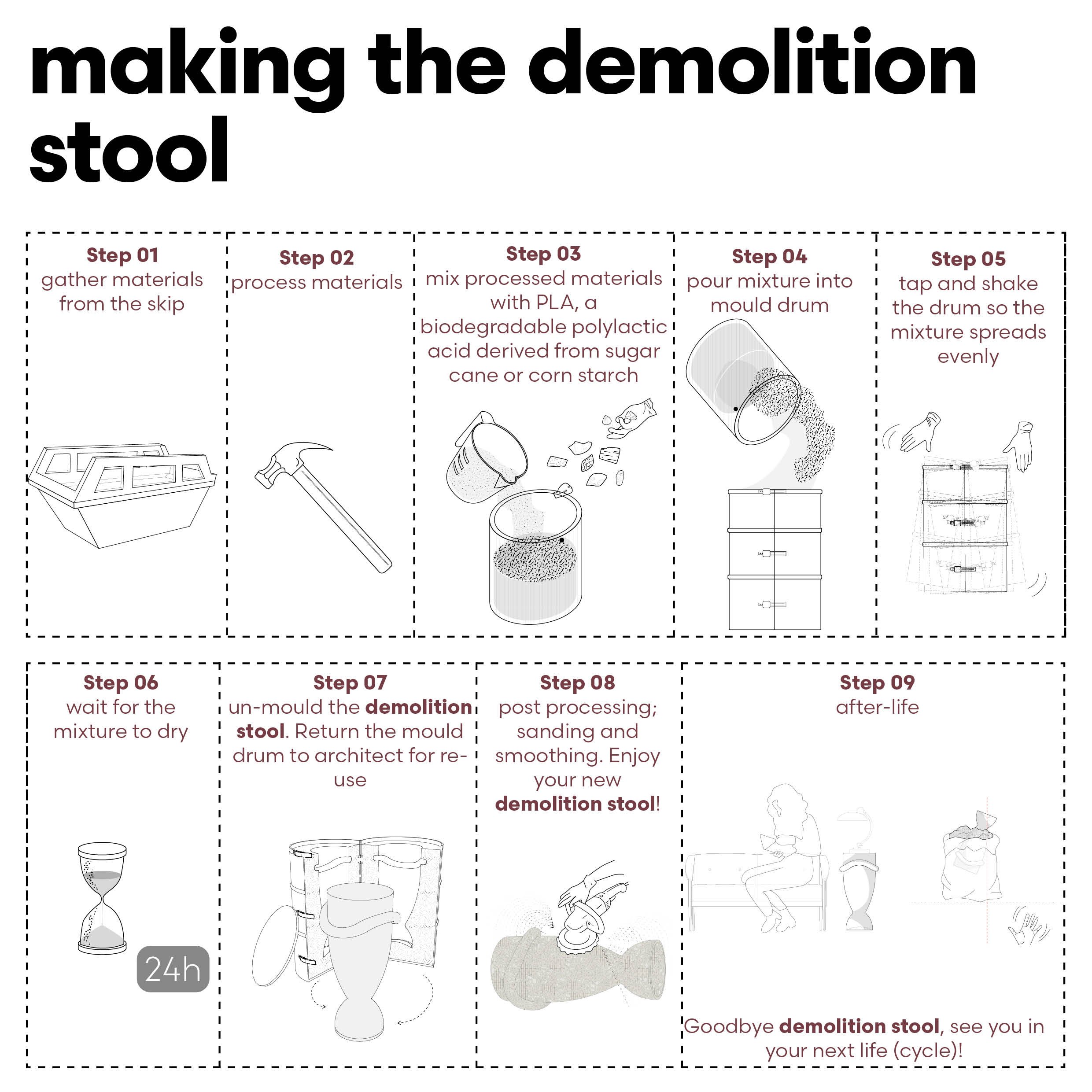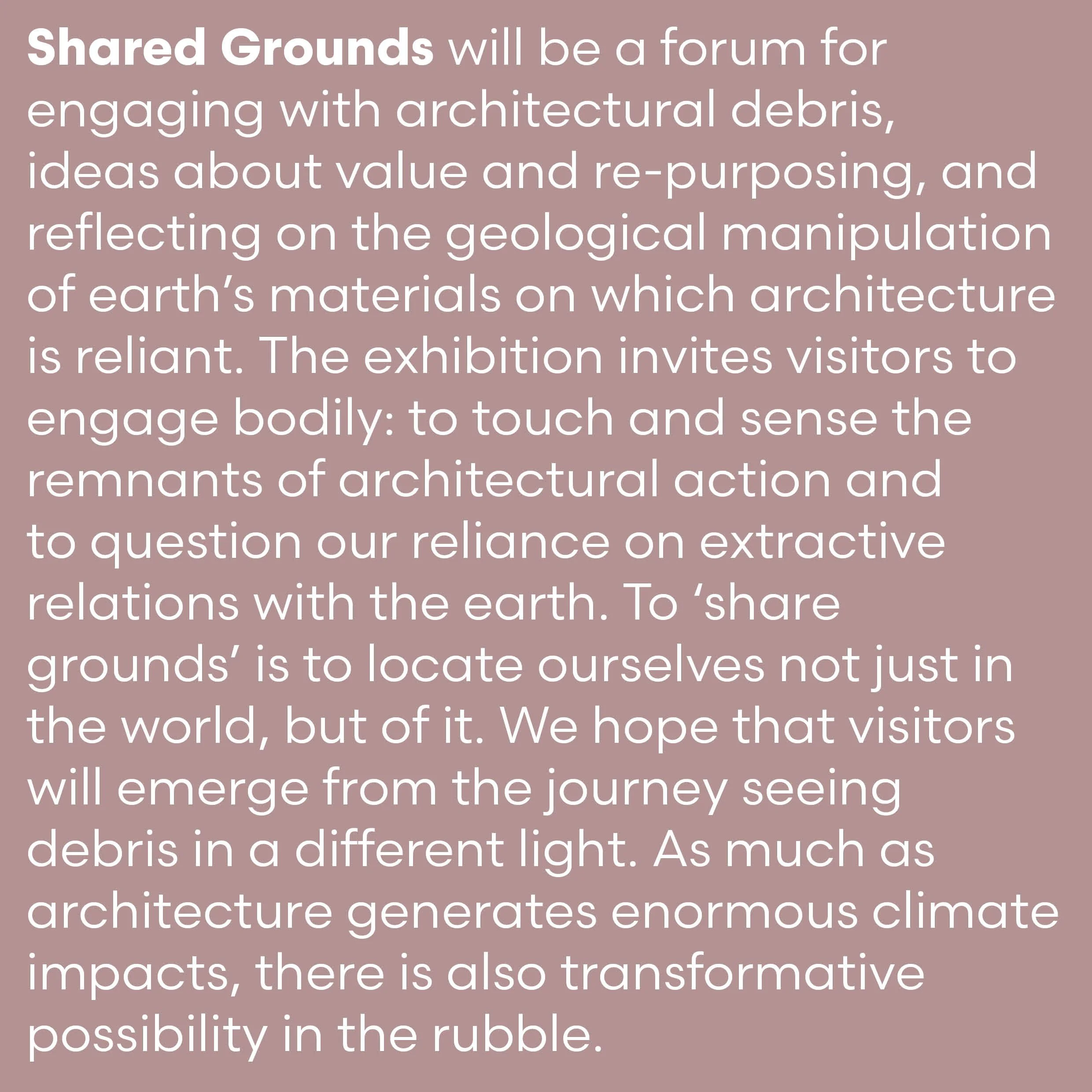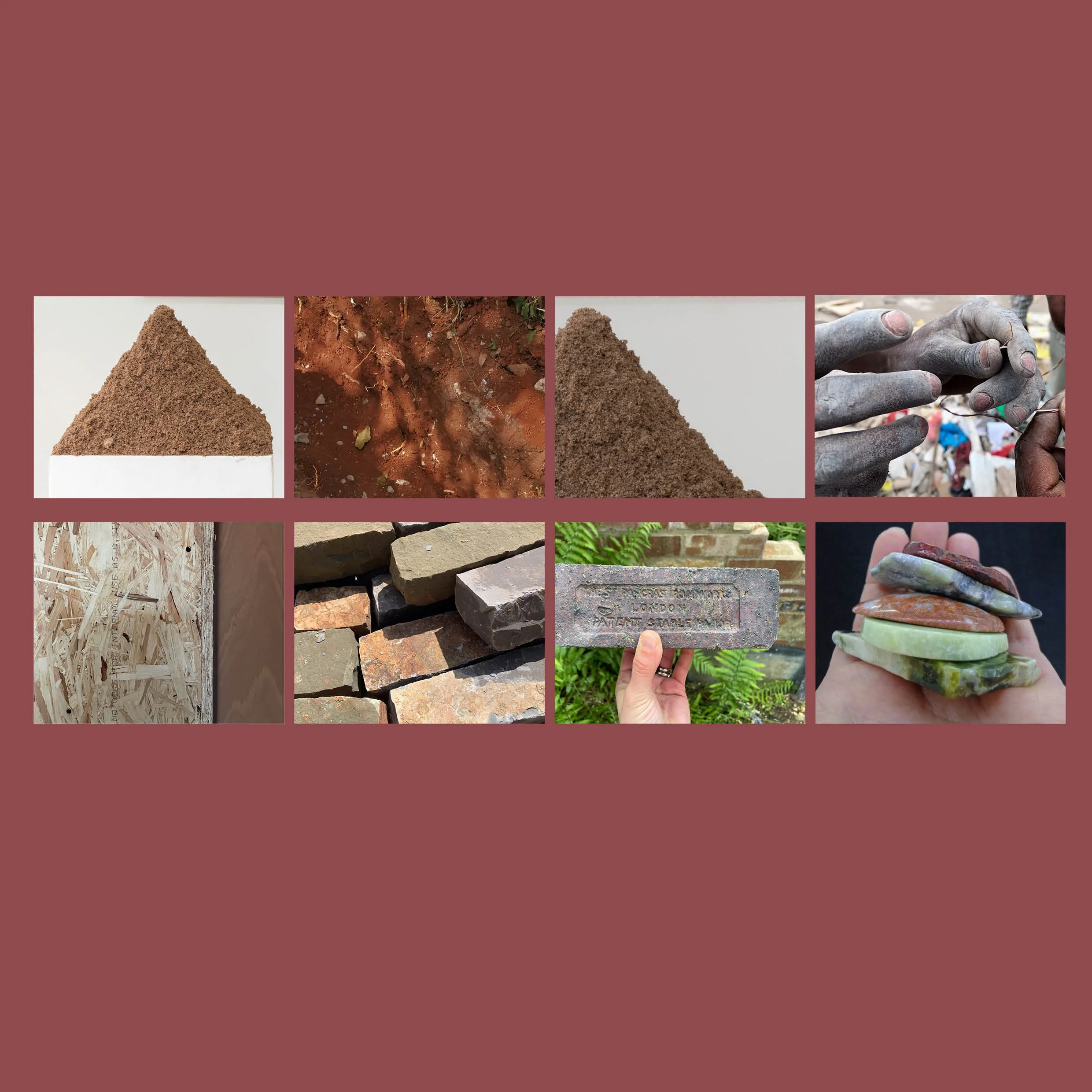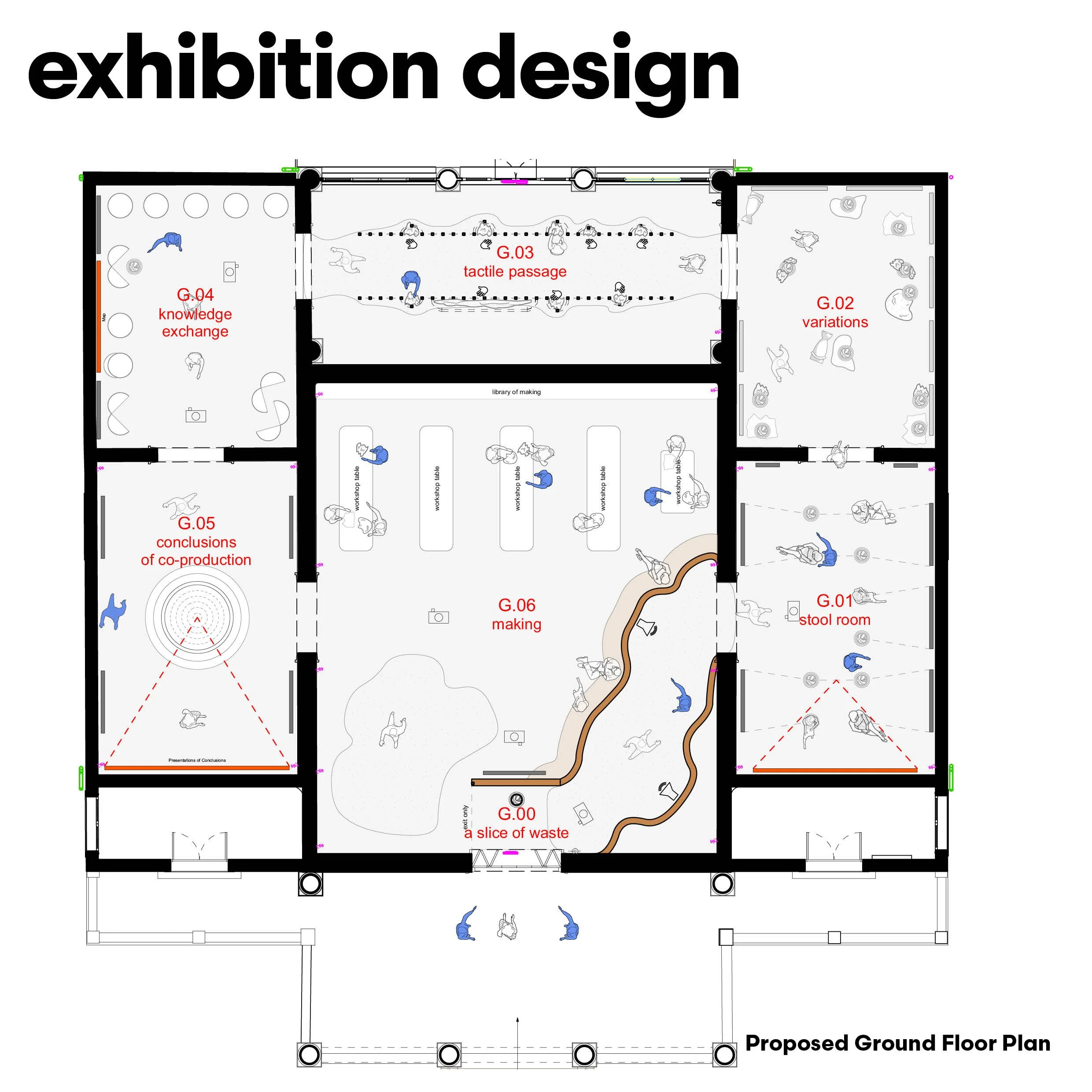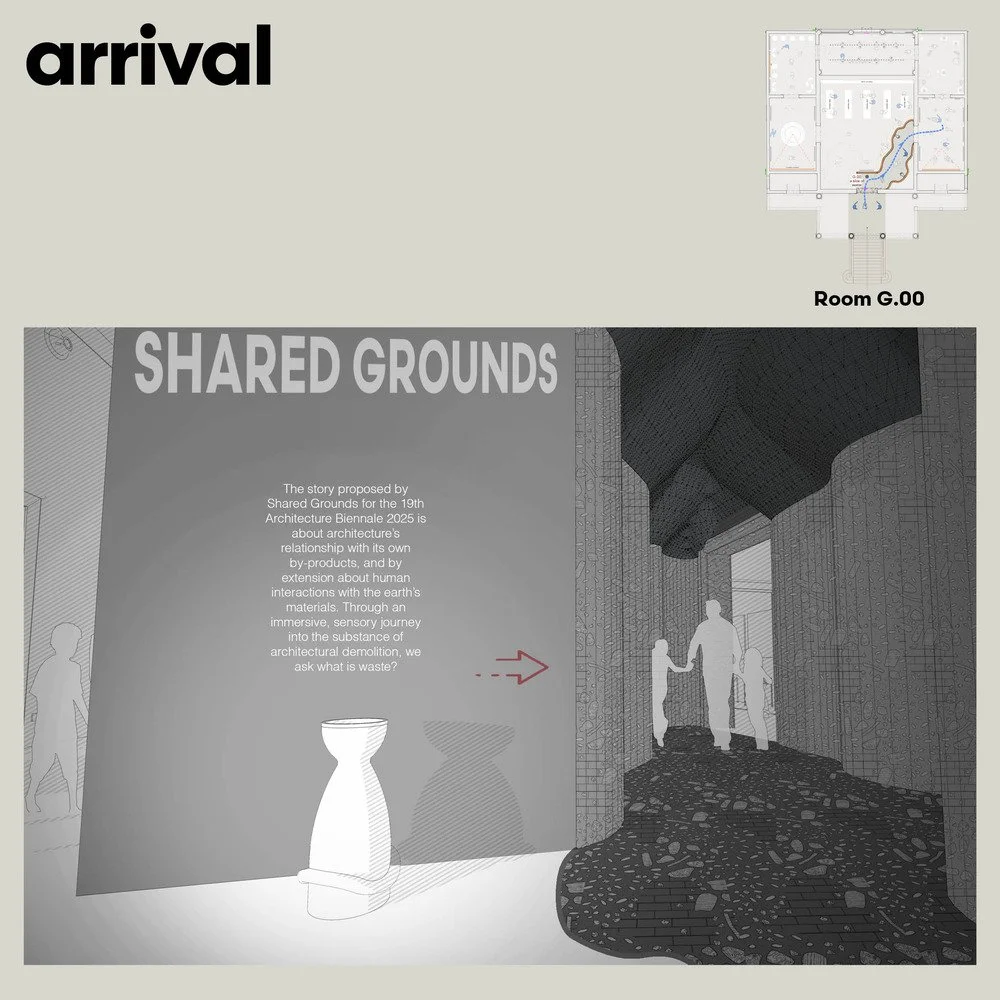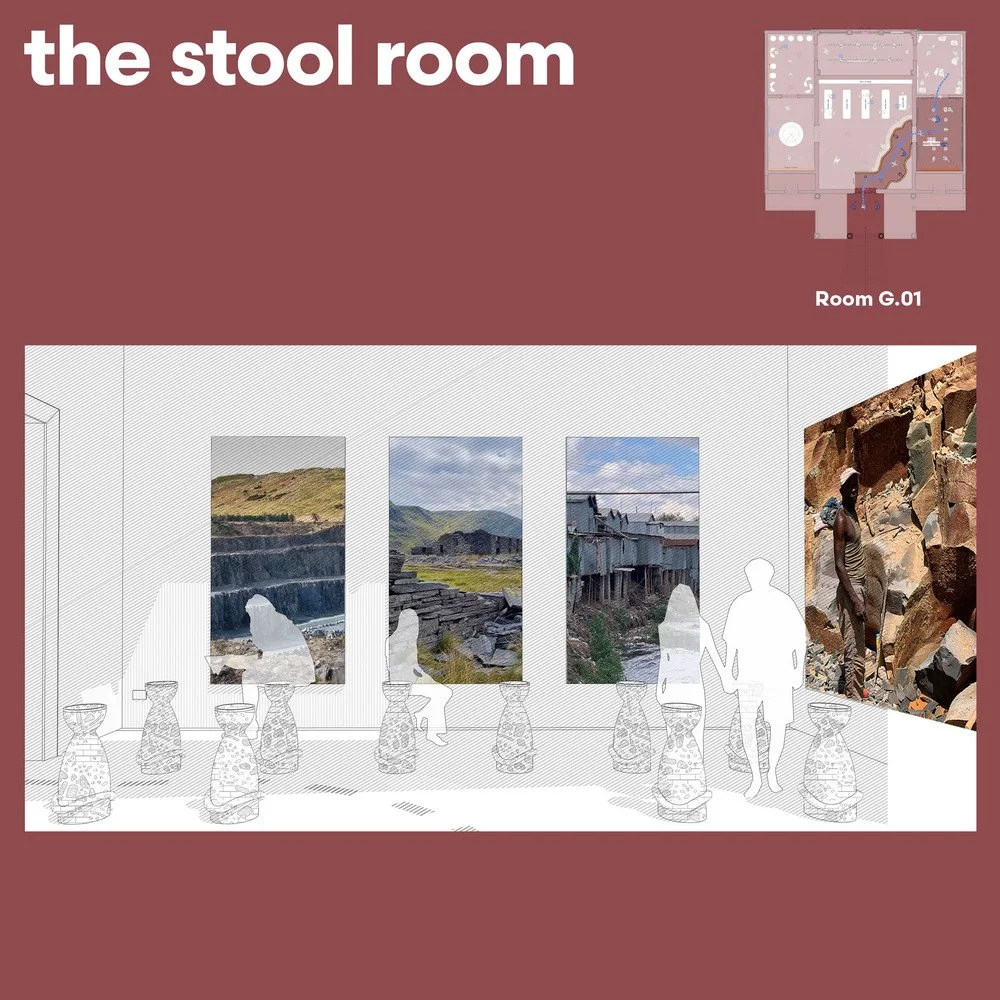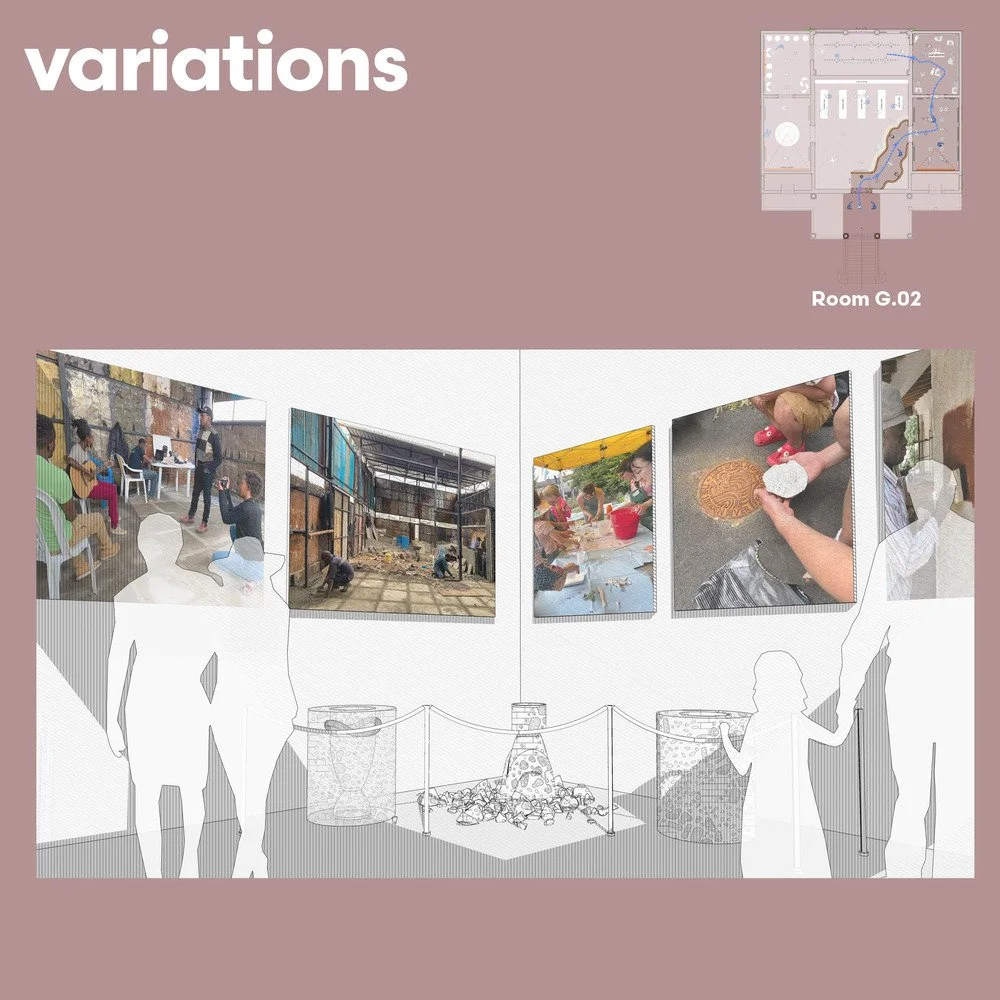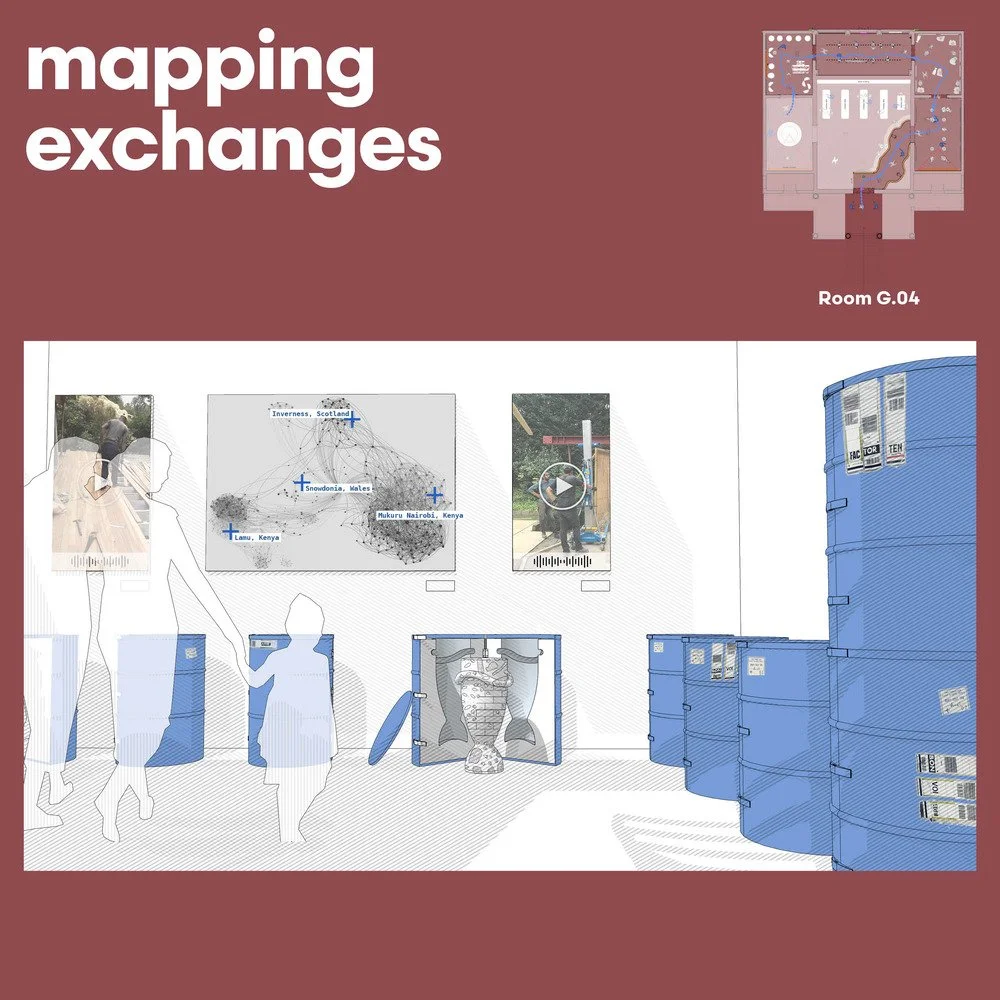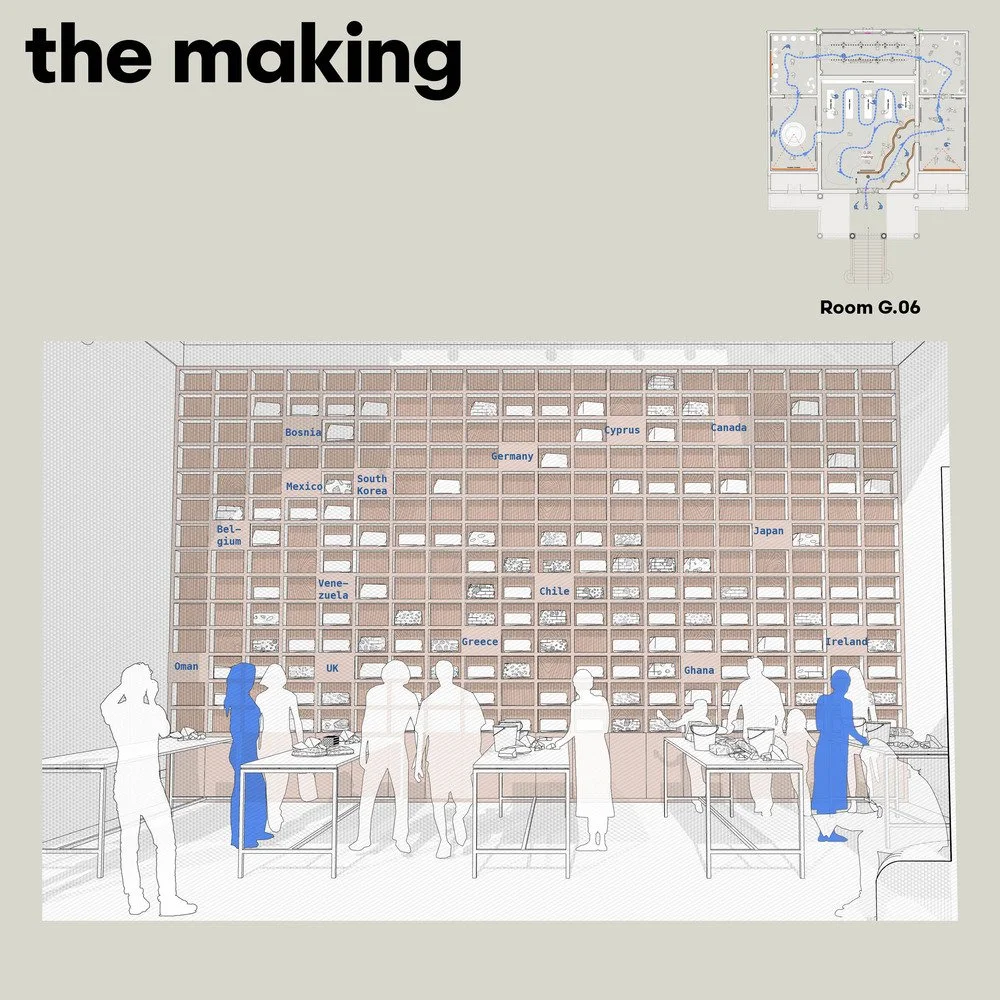shared grounds british pavilion 2025
Venice Biennale, Italy
Type | Shortlisted Competition
Client | N/A
Collaboration | Constance Smith of The University of Manchester, The Wajuuku Collective, James Muriuki
Status | Shortlisted by the British Council
In Shared Grounds, we consider the role of architecture as an actor in the Anthropocene: the geological epoch in which human impact is registered on the planetary record. Reflecting on architecture’s contribution to both climate impacts and sustainable solutions, we create a participatory installation exploring possibilities for architectural ‘waste’ as a grounds for shared material experimentation.
Theme
It is the manipulation of earth’s materials that makes architecture possible. From quarries to foundations, we fracture the earth’s surface, extracting ancient geologies for urban construction. Geological material is also used to make new substances, including concrete, glass, and brick. Architecture and the wider construction industry have a major impact on climate change, accounting for 40-50% of the UK’s carbon emissions. Impacts are intensified by processes of architectural churn: demolition, wastage, and single-use materials.
Recognising architecture’s historical complicity in the climate emergency and ecological injustices, Shared Grounds develops a joint conversation between Wajukuu Art Collective, A Small Studio architects, James Muriuki and Constance Smith. We are architects, artists, urban researchers and arts educators based in the UK and Kenya exploring the opportunities afforded by substances usually considered as waste and how construction debris might inspire solutions to global challenges in architecture.
At the heart of the project will be the experimental co-production of a ‘demolition stool’ made using on-site demolition rubble or discards and bound together with a biodegradable PLA agent (see explainer below). The stool will form the basis of an immersive, sensory Pavilion installation, in which our methods of co-production will be extended to the visiting public and the Venice Fellows, inviting them to participate in material experiments and contribute to our ‘shared grounds’.
Wajukuu are an art collective based in Mukuru informal settlement in Nairobi. Adjacent to the polluting industrial area of Nairobi, and on the banks of the heavily contaminated Ngong’ River, Wajukuu use arts-based advocacy and ecological action to build a creative, resilient community in a marginal neighbourhood. This includes re-purposing building waste and salvaging architectural material to strengthen their homes. Shared Grounds will bring Wajukuu’s innovative knowledge of rubble, auto-construction and land stability together with A Small Studio’s expertise in UK-based site circularity and community engagement process for co-production.
In the build-up to the Biennale, we will hold conversations and making workshops across four sites that engage with diverse histories of building materials, cultures of re-purposing and ecological challenges: Snowdonia and Inverness in the UK, and Nairobi and Lamu in Kenya. Using the demolition stool as an anchor, the workshops will establish site-specific knowledge exchange between the UK and in Kenya, sharing understanding of building debris, the possibilities for turning waste into architectural furniture, and the site-specific forms of ecological engagement this can generate.
The workshops will be led by artist and curator James Muriuki and visual anthropologist Constance Smith, who run a Kenya-UK visual research collaboration into the socio-material worlds of construction, and the geologies of architectural interventions. The workshops will also generate reflective audio-visual installations for the exhibition, produced by Muriuki, highlighting human-landscape-architecture engagements at each site.
Use the slider below to see the exhibition concept:
The Team
The curatorial team brings together A Small Studio, a UK architecture practice committed to sustainability and community, with James Muriuki, a Kenyan artist and curator focused on the material transformation of cities, Constance Smith, a visual anthropologist exploring materiality and temporality of urban landscapes, and Wajukuu, a Nairobi community arts collective committed to using art for social justice and sustainable change in their home, the informal settlement of Mukuru.
We have identified four sites with specific geologies and facing ecological challenges, where we have experience of working and established contacts with relevant communities: Snowdonia in Wales, The Highlands in Scotland, Mukuru in Nairobi and Lamu on the Kenyan coast. Workshops in each site will be an opportunity to explore, experiment and co-produce knowledge by making demolition stools. The final stools will be shipped to Venice for exhibiting in the pavilion alongside a series of stools made from Venetian debris, produced with the help of the Venice Fellows.
Shared Grounds will be a forum for engaging with architectural debris, ideas about value and re-purposing, and reflecting on the geological manipulation of earth’s materials on which architecture is reliant. The exhibition invites visitors to engage bodily: to touch and sense the remnants of architectural action and to question our reliance on extractive relations with the earth. To ‘share grounds’ is to locate ourselves not just in the world, but of it. We hope that visitors will emerge from the journey seeing debris in a different light. As much as architecture generates enormous climate impacts, there is also transformative possibility in the rubble.







